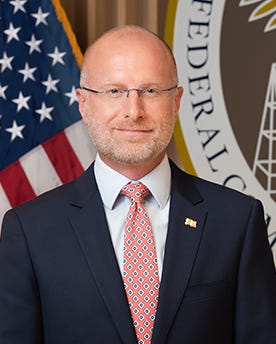Carr’s memory gets selective, as most local stations OK to air Kimmel
Billion-dollar media groups Nexstar, Sinclair still object
The late night show Jimmy Kimmel Live! returns this week, as ABC’s parent company, Disney, found a way through the latest controversy—perhaps with the help of the public outcry over FCC Chairman Brenda Carr’s mafia-style remarks and the yet unmeasured wave of cancellations of Disney+, Hulu, and ESPN subscribers.
Carr said local TV stations opposed Kimmel’s comedy, but The New York Times, ArsTechnica, and others are reporting that it appears only media conglomerates Nexstar and Sinclair raised objections. Nexstar owns 28 ABC affiliates and wants to buy more, but needs the FCC approval to acquire more than the current ownership cap allows. Sinclair owns 38 affiliates.
Carr says he’s helping shift the balance of power toward local ownership, but the claim rings hollow. Republican Senators Ted Cruz, Mitch McConnell and Rand Paul all criticized what they heard from Carr as a threat to Disney. The conservative juggernaut, the American Enterprise Institute, said that the FCC has been known to regulate with raised eyebrows—that is, by making informal remarks to force changes from licensees. As a result, few expect this battle to be the last as the White House continues its campaign against the media.
Over at the Poynter Institute, they have launched a new Press Freedom Watch webpage (with a tip line) to compile “federal actions affecting journalists, including lawsuits, policy changes, investigations, funding cuts, firings and detentions.”
With this tool, Poynter is making it much easier for local news outlets to put their coverage in a broader context, or find tools for their own defense. For example, a handful of student journalists were arrested while covering a protest on Roebling Bridge in Kentucky in July, and the community is pushing back on prosecutors.
We’ll keep a link to Poynter’s Press Freedom Watch on our Resources Page along with links to other press freedom stalwarts, including the Committee to Protect Journalists and its affiliated Press Freedom Tracker, Reporters without Borders, and the Electronic Frontier Foundation, which tracks surveillance trends.
Communications Act of 1934, Sect. 326.
Nothing in this Act shall be understood or construed to give the Commission the power of censorship over the radio communications or signals transmitted by any radio station, and no regulation or condition shall be promulgated or fixed by the Commission which shall interfere with the right of free speech by means of radio communication.


